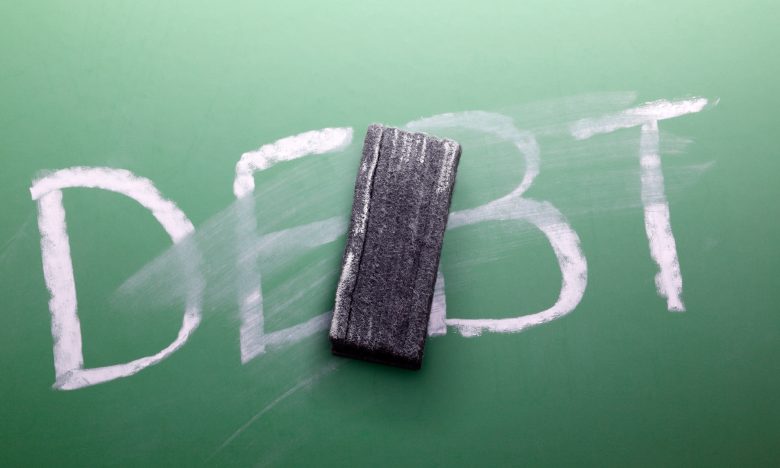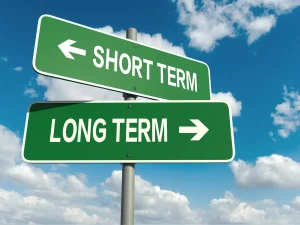Debt can feel like a heavy weight, lurking in every decision you make. While it’s easy to focus on immediate financial concerns, the long-term impact of debt—such as stress, limited financial opportunities, and mounting interest—is profound. Recognizing the urgency to tackle debt is the first step toward reclaiming control over your financial life. Understanding the importance of becoming debt-free isn’t just about finances; it’s about creating peace of mind and freedom to truly focus on what matters most to you.
Assess Your Current Debt Situation
Before tackling debt, you need to have a clear understanding of what you owe. Gather all your credit card bills, loans, and other outstanding financial obligations. Write down the total balances, interest rates, and minimum payments for each debt. This step serves as a reality check. Seeing the numbers in front of you might be daunting, but it provides the transparency needed to build an effective repayment strategy. Transparency here turns despair into empowerment—it’s the starting point for success because you now know exactly what you’re up against.
Creating a Realistic Budget and Sticking to It
To get out of debt, you need to control your cash flow. This begins with creating a realistic budget. List your monthly income and expenses, separating your “needs” from your “wants.” Prioritize essential expenses like housing, food, and minimum debt payments, trimming unnecessary spending where possible. Stick to this budget, tracking every dollar spent. Though it may feel restrictive initially, your budget is the key to eliminating wasteful spending and funneling more money toward debt repayment. A well-executed budget is proof that small, everyday changes can lead to big financial wins.
The Power of the Debt Snowball Method
The debt snowball method is a popular repayment strategy that many people swear by because of its simplicity and motivational power. It involves paying off your smallest debts first, regardless of their interest rates, while making the minimum payments on your larger debts. As you pay off each small debt, you gain emotional momentum, which keeps you motivated to tackle the next. This method is perfect for those who thrive on quick wins and need reassurance that their efforts are paying off. Watching debts disappear one by one is empowering and keeps the momentum alive.
The Debt Avalanche Method
For those more focused on long-term savings, the debt avalanche method might be a better fit. This approach targets debts with the highest interest rates first, regardless of balance size. By concentrating on high-interest debts, you save more money over time since fewer dollars are spent on interest. The key to successfully following this strategy is patience—it may take longer to see debts disappear, but the long-term cost savings make it worthwhile. This method suits individuals motivated by numbers rather than quick psychological wins.
Increasing Income Streams to Accelerate Debt Repayment
Relying solely on cutting expenses may not be enough to achieve debt freedom quickly. Consider boosting your income through additional streams. This could involve taking up freelance work, starting a side hustle, selling unused items, or even part-time jobs to earn extra cash. Direct all additional income toward debt repayment rather than new expenses. Even minor monetary boosts, like offering services on platforms like Fiverr or Uber, compound quickly when applied consistently to debt. More income means faster progress and significantly decreased repayment times.
Cutting Expenses and Finding Creative Savings
Reducing your expenses is another pillar of rapid debt repayment. Take a critical look at your spending habits and find areas where you can cut costs. Can you cook more at home instead of dining out? Cancel unused subscriptions or switch to more affordable options for necessities like insurance and utilities. Get creative when finding ways to save, such as using cashback apps, couponing, or even bartering services. Every dollar saved can be directed toward clearing your debt faster. Frugality paired with creativity accelerates your progress without sacrificing too much comfort.
Negotiating Lower Interest Rates and Payment Plans
Many people don’t realize that they can negotiate their way to reduced debt. Contact your creditors to request lower interest rates or inquire about different repayment plans that fit your budget. Explain your financial situation and highlight your commitment to repayment—lenders often prefer to work with you rather than risk non-payment. Even a reduction of 1–2% on interest rates can make a significant difference over time, saving you hundreds or even thousands of dollars. The sooner you start the negotiation, the better it is for your financial health.
Using Windfalls Wisely for Debt Reduction
Unexpected financial gains like tax refunds, work bonuses, or even cash gifts provide an excellent opportunity to make a dent in your debt. Allocate a significant portion of these windfalls directly toward your balances rather than spending them. While it’s tempting to splurge, using this money responsibly can significantly shorten your repayment timeline and potentially eliminate certain debts altogether. By committing your windfalls to debt reduction, you fast-track your path to financial freedom.
Staying Motivated and Tracking Progress
Repaying debt is a journey, not a quick fix. It’s essential to remain motivated and celebrate your progress, no matter how small. Consider using visual tools like a debt repayment tracker or progress charts to stay encouraged. Surround yourself with supportive friends, family, or communities pursuing similar financial goals. Acknowledging each milestone—what was once a seemingly insurmountable debt balance steadily decreasing—helps maintain momentum until you’re entirely debt-free.
Seeking Professional Help When Needed
Sometimes, tackling debt alone can feel overwhelming, and it’s okay to reach out for help. If your financial situation feels unmanageable, consult a financial advisor, credit counselor, or debt relief company. These professionals can provide tailored advice, help you negotiate with creditors, or guide you through debt consolidation options. Seeking help is not a sign of failure—it’s a proactive step toward regaining control of your finances more effectively.
Building a Debt-Free Future and Maintaining Financial Health
Debt repayment is just half the struggle. Once you’ve reached your goal, maintaining financial health is vital to avoid falling back into debt. Build an emergency fund to prepare for unexpected expenses and establish saving habits that align with your financial goals. Continue budgeting and living below your means, even as your financial flexibility increases. With freedom from debt comes the opportunity to invest in your future and create the life you’ve always envisioned—without financial constraints holding you back.
FAQs
1. How long does it realistically take to pay off debt quickly?
The timeframe depends on several factors, including the debt amount, your repayment method, and how aggressive you are with repayments. Using strategies like the snowball or avalanche method and increasing income can significantly shorten the timeframe.
2. Are budgeting apps helpful for managing debt repayments?
Yes, budgeting apps like Mint, YNAB (You Need a Budget), or EveryDollar can streamline managing your finances. They help track spending, monitor debt repayment progress, and ensure sticking to your budget.
3. Should I always prioritize debt with the highest interest rate?
High-interest debt should generally be prioritized, as it saves the most money long-term. However, if you feel like you need small wins for motivation, the debt snowball (starting with low balances) may work better for you.
4. Can I still save money while paying off debt?
It’s beneficial to at least build a small emergency fund ($500–$1,000) before focusing solely on debt repayment. Once that’s set, direct the majority of your funds toward debt.
5. When might debt consolidation be a good idea?
Debt consolidation might suit you if you have multiple high-interest debts that you struggle to keep up with. Consolidation merges your debts into one loan with a lower interest rate, simplifying repayment.




